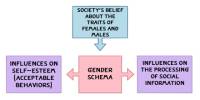A learning society is a community or society that places a strong emphasis on continuous learning, education, and personal development for all of its members. It is an educational philosophy advocated by the OECD and UNESCO that holds that education should extend beyond formal learning (based in traditional educational institutions – schools, universities, etc.) into informal learning centers to support a knowledge economy (known as a “world education culture”).
A learning society views learning as a ‘activity, not a place,’ that is, it occurs outside of traditional educational institutions and is thus decentralized and deregulated, a tenet of globalisation theory. Learning in a learning society is not limited to formal educational institutions, but is viewed as a lifelong process that occurs in a variety of settings and through a variety of experiences.
Learning societies are broader in scope, drawing on elements of systems to enable individuals to engage in lifelong learning. If lifelong learning is about an individual’s ability, then a Learning Society facilitates this.
It is the ‘socialization’ of individual lifelong learning and is currently aided through technologies and the increasing focus on social networking, by using the shared learning experiences of individuals as a basis for a larger network of education that exists formally and informally (schools, universities, job-training, support, collaboration, feedback etc.).
Key characteristics of a learning society include:
- Lifelong Learning: In a learning society, individuals of all ages engage in learning activities throughout their lives, adapting to new challenges and opportunities. Learning is not confined to a specific period of life but is integrated into daily routines.
- Diverse Learning Pathways: Learning can happen through formal education, informal experiences, online courses, workshops, community activities, and more. There’s a recognition that learning doesn’t always have to follow traditional paths.
- Collaboration and Networking: A learning society encourages collaboration and networking among individuals, promoting the exchange of knowledge and ideas. Learning is enhanced through interactions with others who bring diverse perspectives.
- Valuing Curiosity and Critical Thinking: A culture of curiosity and critical thinking is fostered, encouraging individuals to question, analyze, and explore various topics. This helps people develop a deeper understanding of the world around them.
- Flexibility and Adaptability: Since the world is constantly evolving, a learning society emphasizes the importance of being flexible and adaptable to change. Individuals are equipped with skills that enable them to navigate new situations and challenges effectively.
- Equal Access to Education: A learning society strives to provide equal access to education and learning opportunities for all its members, regardless of their socioeconomic background, age, gender, or other factors.
- Innovation and Problem-Solving: A learning society values innovation and encourages its members to develop problem-solving skills. This can lead to advancements in various fields and contribute to societal progress.
Learning is about more than just gaining knowledge; it is also about personal growth and development. Individuals are encouraged to pursue their interests and passions. Continuous improvement is prioritized at both the individual and collective levels in a learning society. Feedback is welcomed, and the society is looking for ways to improve its educational systems and processes. Technology is frequently used to facilitate learning in learning societies. Learning can be made more accessible and engaging by using online platforms, digital resources, and educational apps.
A learning society reflects the need for individuals to adapt to an ever-changing world and equip themselves with the skills and knowledge required for success in various aspects of life. It recognizes that learning is not just a means to an end but a valuable pursuit in its own right.
















